#jane crawford
Explore tagged Tumblr posts
Text
Now Playing...
Artist: Wednesday Afternoon
Title: Out Of My Mind
Album: Out Of My Mind Single

Played on: Thu Jan 09 2025 14:12:37 GMT-0600 (Central Standard Time)
#Wednesday Afternoon #Female Fronted #BEWARE THE SIREN
#Wednesday Afternoon#Jane Crawford#beware the siren#female fronted#80s#80s music#synth-pop#picture sleeve#80s synth pop#1982
0 notes
Text










Summertimenoir's 1k followers celebration - My top 10 Old Hollywood actresses
3. Joan Crawford
If you've earned a position, be proud of it. Don't hide it. I want to be recognized. When I hear people say, 'There's Joan Crawford!' I turn around and say, 'Hi! How are you!'
#filmedit#classicfilmedit#moviegifs#oldhollywoodedit#filmgifs#joan crawford#the unknown#paid#dance fools dance#rain#a woman's face#mildred pierce#humoresque#sudden fear#what ever happened to baby jane#strait jacket#1920s#1930s#1940s#1950s#1960s#**mygifs#*top10actress
235 notes
·
View notes
Text

Claudia Schiffer
#claudia schiffer#joseph gordon levitt#gq magazine#valeria mazza#karen mulder#2000s#y2k#bella hadid#adriana lima#gisele bundchen#pamela anderson#kate moss#irina shayk#anna nicole smith#carla bruni#chanel#esther canadas#femme fatale#girlblogging#heidi klum#jane birkin#miranda kerr#lingiere#marilyn monroe#natalia vodianova#yasmeen ghauri#cindy crawford
314 notes
·
View notes
Text
Fanny Price & Catherine Morland would be so good for each other. Fanny would bring the prudence, but Catherine is pure warmth and joy and Fanny needs that so badly. They have enough mutual interests (reading, horse riding) to get them started in a friendship and I really think they'd soon love each other.
(and maybe Henry Tilney can be a good influence on Edmund?)
#jane austen#mansfield park#northanger abbey#fanny price#catherine morland#Fanny needs hugs#from Catherine#and Catherine needs advice from Fanny#why can Fanny only have one friend and its Mary Crawford?#friends for Fanny!!!
208 notes
·
View notes
Text






HAYLEY ATWELL is MARY CRAWFORD
Mansfield Park (2007)
#mansfield park#mary crawford#period drama#period film#perioddramaedit#onlyperioddramas#hayley atwell#hayley atwell edit#filmtvcentral#film gifs#dailyworldcinema#fyeahmovies#cinematv#jane austen#book adaptation#ladiesofcinema#usertream#userbbelcher#nessa007#tuserpris#userfilm#userfairy
378 notes
·
View notes
Text
In another note on Mansfield Park – the thing that bothers me most about Henry Crawford is that he is doing, repeatedly, exactly what Willoughby did to Marianne in Sense and Sensibility: charm them, get them to fall in love with him, give them all the social signals that he is about to propose marriage, and then drop them and act like they were reading too much into it. From the way he and Mary talk, he’s done this to dozens of women. Willoughby differs in that he ended up actually falling for Marianne, whereas Henry does not fall in love with his conquests (until he tries to play this trick on Fanny, who remains unconquered).
And we hate Willoughby for what he did to Marianne! Marianne’s experience with Willoughby came near to being life-ruining, she was so devastated by it.
Willoughby is worse in his seduction and abandonment of Eliza, Colonel Brandon’s ward, but not in any other respect.
And the excuse made for Henry Crawford seems to be the assumption/assertion that these offscreen women were all silly, shallow, and vain, and only their pride was hurt. But there’s no reason to actually believe this! It’s just placing the blame for Henry’s actions on the people that he’s mistreating and making miserable.
It frustrates me to see this written off as “flirting”. It’s much more than that! When he toys with Maria at Sotherton, he is telling her in clear symbolism that she should drop Rushworth for him and, if she does, he will marry her. He is lying. And saying of all the women he’s lied to, “They should have known better,” is not remotely an excuse.
173 notes
·
View notes
Text

neeeed this
#claudia schiffer#90s supermodels#linda evangelista#christy turlington#helena christensen#naomi campbell#high fashion#blonde bombshell#kate moss#cindy crawford#lana del rey#lizzy grant#old hollywood#hollywood starlet#naomi lapaglia#diana dors#marylin monroe#bridgitte bardot#jane birkin#audrey hepburn#and god created woman#joseph gordon levitt#anna nicole smith#vs angel#karen mulder#victoria secert model#adriana lima#gisele bundchen#victoria secret backstage#victoria secret angel
303 notes
·
View notes
Text

#polls#movies#what ever happened to baby jane#what ever happened to baby jane?#60s movies#robert aldrich#bette davis#joan crawford#victor buono#wesley addy#julie allred#requested#have you seen this movie poll
127 notes
·
View notes
Text
The problem with discussions about Henry Crawford is that there are two different questions being asked at the same time: 1) Can Fanny reform Henry? and 2) Can Henry reform?
Austen answers negatively to the first one, but I'd argue she's very ambivalent in her answer to the second.
Austen is not in the habit of "punishing" her villains; none of them are struck by accidents of fortune or anything the like, but we commonly perceive the downgrade between what they could have had and what they end up having. Edward Ferrars is an infinitely preferrable husband to Robert Ferrars, but Lucy Steele never seems to become aware of that fact. Isabella tries to get Captain Tilney over James Morland. Mr. Elliot is not crying by the corners over the fact that he lost Anne Elliot. Even Willoughby's regret is not about Marianne's actual goodness, but his personal convenience. Austen's "villains" as a rule are morally stupid people.
When Aristotle says that no one can be good who is stupid, he doesn't have in mind things like being good at Math or being well read or quick-witted; he's thinking of a certain intuition, clear-sightedness about what is good, what contributes to human flourishing, and this seems to be a strong component of what Austen calls sense. Sense is almost convertible (if not completely) with prudence, and prudence is a rather intuitive virtue, as it regulates the when, the how, the how much, etc of the other moral virtues. (and there goes my first thesis topic that I never did!).
In that way it is interesting that only 4 characters are said to possess sense in Mansfield Park: Edmund, Fanny, Henry, and Tom (and Tom doesn't even fully count, because his is expressed negatively: instead of having sense, he doesn't lack it). Here are the Henry instances:
"He did not want them to die of love; but with sense and temper which ought to have made him judge and feel better, he allowed himself great latitude on such points." "Henry Crawford had too much sense not to feel the worth of good principles in a wife, though he was too little accustomed to serious reflection to know them by their proper name; but when he talked of her having such a steadiness and regularity of conduct, such a high notion of honour, and such an observance of decorum as might warrant any man in the fullest dependence on her faith and integrity, he expressed what was inspired by the knowledge of her being well principled and religious." "That punishment, the public punishment of disgrace, should in a just measure attend his share of the offence is, we know, not one of the barriers which society gives to virtue. In this world the penalty is less equal than could be wished; but without presuming to look forward to a juster appointment hereafter, we may fairly consider a man of sense, like Henry Crawford, to be providing for himself no small portion of vexation and regret: vexation that must rise sometimes to self-reproach, and regret to wretchedness, in having so requited hospitality, so injured family peace, so forfeited his best, most estimable, and endeared acquaintance, and so lost the woman whom he had rationally as well as passionately loved."
(I'm not counting the one time Edmund calls him a man of sense, and the one time Sir Thomas does the same, for obvious contextual reasons).
It's not only interesting that he is the only rake to be called a man of sense by the narrator (Mrs. Smith calling Mr. Elliot a man of sense in Persuasion is clearly not meant to be taken straight), but that it is always specifically tied to moral perceptiveness; he was morally perceptive enough to know he shouldn't have played the way he did, and he chose to ignore it. He perceives Fanny's moral worth, and it is the core reason why he wants to marry her.* He also perceives William's moral worth as something both good and desirable:
"To Henry Crawford they gave a different feeling. He longed to have been at sea, and seen and done and suffered as much. His heart was warmed, his fancy fired, and he felt the highest respect for a lad who, before he was twenty, had gone through such bodily hardships and given such proofs of mind. The glory of heroism, of usefulness, of exertion, of endurance, made his own habits of selfish indulgence appear in shameful contrast; and he wished he had been a William Price, distinguishing himself and working his way to fortune and consequence with so much self-respect and happy ardour, instead of what he was!"
Both here and at the end of the novel, Henry's moral perceptiveness leads to remorse for his own moral wrongdoings. Compare this to Willoughby's regret over Marianne:
"Willoughby could not hear of her marriage without a pang; and his punishment was soon afterwards complete in the voluntary forgiveness of Mrs. Smith, who, by stating his marriage with a woman of character, as the source of her clemency, gave him reason for believing that had he behaved with honour towards Marianne, he might at once have been happy and rich. That his repentance of misconduct, which thus brought its own punishment, was sincere, need not be doubted;—nor that he long thought of Colonel Brandon with envy, and of Marianne with regret. But that he was for ever inconsolable, that he fled from society, or contracted an habitual gloom of temper, or died of a broken heart, must not be depended on—for he did neither. He lived to exert, and frequently to enjoy himself. His wife was not always out of humour, nor his home always uncomfortable; and in his breed of horses and dogs, and in sporting of every kind, he found no inconsiderable degree of domestic felicity."
This sense/moral perceptiveness of Henry Crawford, and his experiencing remorse for his own wrongdoings sets him apart from the other Austen rakes. He's also not a drinker or a gambler; he does take at least minimal care of Everingham ("Everingham could not do without him in the beginning of September. He went for a fortnight") and did some modifications to it as soon as he got it. The same way Darcy's character is revealed as we see Pemberley, so the inflexion point of Henry's redemption attempt is his trying to become a better master of his estate:
For her approbation, the particular reason of his going into Norfolk at all, at this unusual time of year, was given. It had been real business, relative to the renewal of a lease in which the welfare of a large and—he believed—industrious family was at stake. He had suspected his agent of some underhand dealing; of meaning to bias him against the deserving; and he had determined to go himself, and thoroughly investigate the merits of the case. He had gone, had done even more good than he had foreseen, had been useful to more than his first plan had comprehended, and was now able to congratulate himself upon it, and to feel that in performing a duty, he had secured agreeable recollections for his own mind. He had introduced himself to some tenants whom he had never seen before; he had begun making acquaintance with cottages whose very existence, though on his own estate, had been hitherto unknown to him. This was aimed, and well aimed, at Fanny. It was pleasing to hear him speak so properly; here he had been acting as he ought to do. To be the friend of the poor and the oppressed! Nothing could be more grateful to her; and she was on the point of giving him an approving look, when it was all frightened off by his adding a something too pointed of his hoping soon to have an assistant, a friend, a guide in every plan of utility or charity for Everingham: a somebody that would make Everingham and all about it a dearer object than it had ever been yet. She turned away, and wished he would not say such things. She was willing to allow he might have more good qualities than she had been wont to suppose. She began to feel the possibility of his turning out well at last; but he was and must ever be completely unsuited to her, and ought not to think of her.
I have half an idea of going into Norfolk again soon. I am not satisfied about Maddison. I am sure he still means to impose on me if possible, and get a cousin of his own into a certain mill, which I design for somebody else. I must come to an understanding with him. I must make him know that I will not be tricked on the south side of Everingham, any more than on the north: that I will be master of my own property. I was not explicit enough with him before. The mischief such a man does on an estate, both as to the credit of his employer and the welfare of the poor, is inconceivable. I have a great mind to go back into Norfolk directly, and put everything at once on such a footing as cannot be afterwards swerved from. Maddison is a clever fellow; I do not wish to displace him, provided he does not try to displace me; but it would be simple to be duped by a man who has no right of creditor to dupe me, and worse than simple to let him give me a hard-hearted, griping fellow for a tenant, instead of an honest man, to whom I have given half a promise already. Would it not be worse than simple? Shall I go? Do you advise it?” “I advise! You know very well what is right.” “Yes. When you give me your opinion, I always know what is right. Your judgment is my rule of right.” “Oh, no! do not say so. We have all a better guide in ourselves, if we would attend to it, than any other person can be.
This is even more hammered in by the narrator: "Had he done as he intended, and as he knew he ought, by going down to Everingham after his return from Portsmouth, he might have been deciding his own happy destiny."
All these elements seem to point towards his being redeemable; he almost managed it! If only he'd gone to Everingham instead of London, catastrophic failure would have been averted! And yet at the same time we are told this:
Henry Crawford, ruined by early independence and bad domestic example, indulged in the freaks of a cold-blooded vanity a little too long. Once it had, by an opening undesigned and unmerited, led him into the way of happiness. Could he have been satisfied with the conquest of one amiable woman’s affections, could he have found sufficient exultation in overcoming the reluctance, in working himself into the esteem and tenderness of Fanny Price, there would have been every probability of success and felicity for him. His affection had already done something. Her influence over him had already given him some influence over her. Would he have deserved more, there can be no doubt that more would have been obtained, especially when that marriage had taken place, which would have given him the assistance of her conscience in subduing her first inclination, and brought them very often together. Would he have persevered, and uprightly, Fanny must have been his reward, and a reward very voluntarily bestowed, within a reasonable period from Edmund’s marrying Mary.
Ruined by early independence and bad domestic example. Mansfield Park is in a way a rather pessimist novel: it is a novel about education, and once your education has "set", your character is fixed, and your fate determined. Much of Maria and Julia's disgrace was also directly caused by their upbringing in a household where all importance was given to superficial qualities, and very little effective affection was shared; one can compare the restrained calm of Mansfield as a reflection of Sir Thomas' own unwillingness to see reality and give himself some discomfort in making others comfortable, with the bustle of the Musgrove household, and connect the dots to what makes the relationship between sisters Maria and Julia so different from the one between Louisa and Henrietta in similar situations.
In the end, it's a bit of a Schröedinger's cat situation. Can Henry reform? Yes, says Austen, he has the qualities needed for moral improvement, but no, his upbringing ruined him, and his character is fixed.
While this idea is the strongest in MP, it is present one way or another in all Austen's novels. Characters reforming is usually more about one specific quality or moral tone not being fine tuned than proper metanoia. Darcy was taught to do right, and did right; what he needed was to add proper humility and kindness to his practice. There is an exception, though, the one thing Charlotte Brontë and Jane Austen agree upon: a close brush with death is the best recipe for moral cure in the otherwise incurable.
Maybe the key is to wish Henry a good pneumonia, or a strong horsefall-induced concussion.
_____________
*On a side note, it's interesting that before he proposes, he considers how attached Fanny is to Mansfield, as undeserving as he thinks the Bertrams to be of her affection, and even draws a plan that contemplates giving her pleasure that way too: "I will not take her from Northamptonshire. I shall let Everingham, and rent a place in this neighbourhood; perhaps Stanwix Lodge."
225 notes
·
View notes
Text

Bette Davis & Joan Crawford in the set of “What Ever Happened To Baby Jane?” - 1962
#bette davis#joan crawford#what ever happened to baby jane#1962#60s#60s icons#60s fashion#old hollywod glamour#old hollywood#hollywood glamour#black and white#actress#movies#fyp#fypシ
262 notes
·
View notes
Text

#i want that reformed rake ending#yes jane I know what you were doing but you made him too charming#jane austen#mansfield park#classic lit memes#fanny price#henry crawford
57 notes
·
View notes
Text







I was thinking. It's ever so long since we had a talk, you know, a real talk about the future and everything.
What Ever Happened to Baby Jane (1962) dir. Robert Aldrich
#filmedit#classicfilmedit#classic hollywood#old hollywood#oldhollywoodedit#filmgifs#moviegifs#What Ever Happened to Baby Jane#joan crawford#bette davis#1960s#**mygifs
241 notes
·
View notes
Text
Knows how to be polite or behave in good society, or at least wants to make others believe he does: John Thorpe
Knows how to be polite and behave in good society, doesn’t care if she wants to make things interesting: Mary Crawford
Knows how to be polite and behave in good society, doesn’t care if her FEELINGS are involved: Marianne Dashwood
Knows how to be polite and behave in good society, doesn’t care if the company is not to his liking: Fitzwilliam Darcy
#jane austen#pride and prejudice#fitzwilliam darcy#mansfield park#mary crawford#sense and sensibility#Marianne Dashwood#northanger abbey#John thorpe#crack but also text
86 notes
·
View notes
Text
One text post for each dubious male character in each Austen novel
George Wickham, Pride & Prejudice

Mr. Elliot, Persuasion

John Thorpe, Northanger Abbey

John Willoughby, Sense & Sensibility

Henry Crawford, Mansfield Park

Frank Churchill, Emma

Bonus:

Jane Austen Text Posts
#jane austen#text posts#pride and prejudice#mansfield park#sense and sensibility#northanger abbey#emma#persuasion#wickham#willoughby#mr. elliot#frank churchill#henry crawford#john thorpe
354 notes
·
View notes
Text





MANSFIELD PARK
(2007)
#mansfield park#mary crawford#edmund bertram#periodfilm#perioddramaedit#period drama#dailyflicks#filmgifs#moviesgifs#onlyperioddramas#hayley atwell#hayley atwell edit#cinematv#fyeahmovies#filmtvcentral#jane austen#book adaptation#usertream#userbbelcher#2000s
103 notes
·
View notes
Text
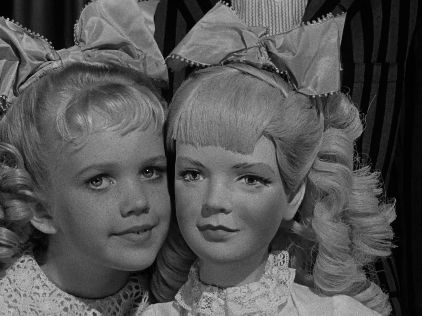
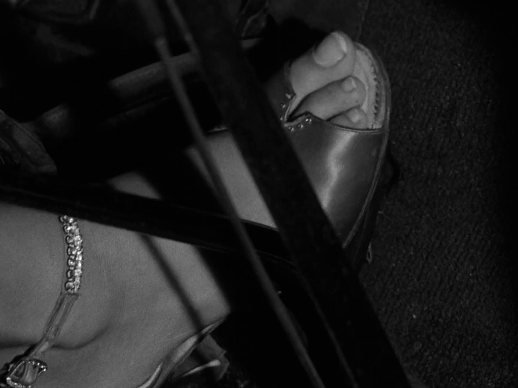
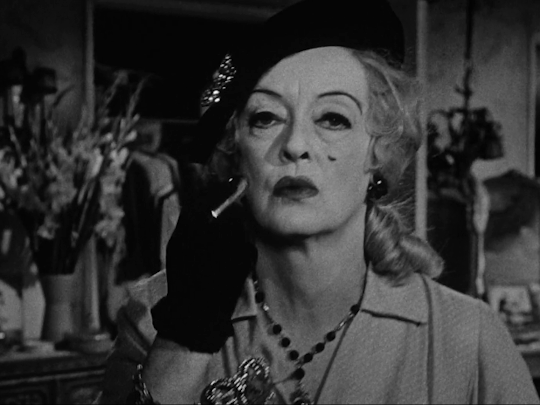
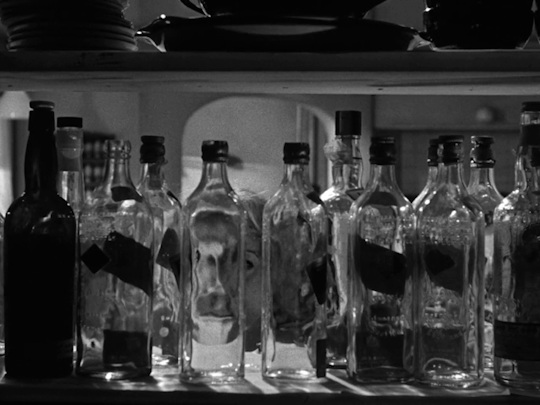
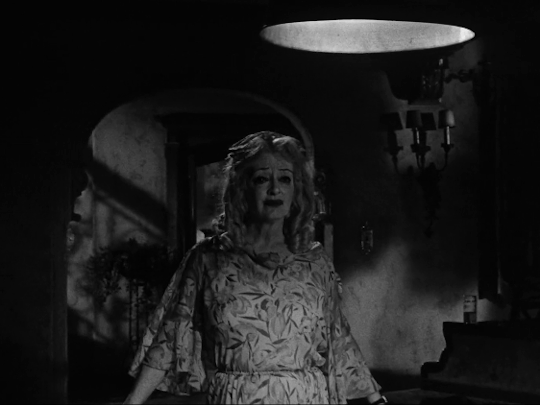
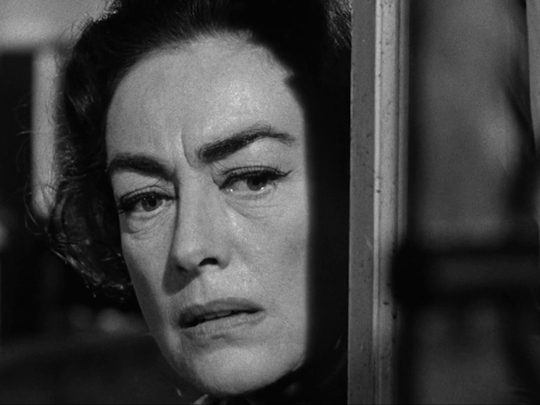
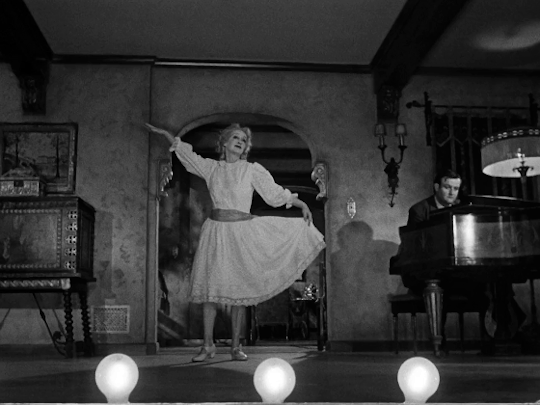
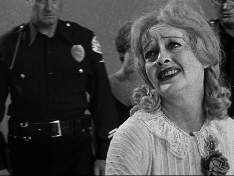
What Ever Happened to Baby Jane? (1962) // dir. Robert Aldrich
#what ever happened to baby jane#cinema#films#bette davis#joan crawford#60s#hollywood#horror#horror classics#horror movies#moviegifs
177 notes
·
View notes